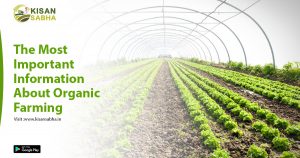With the advent of AI, Machine Learning and IoT, the ecosystem of agriculture in India will be backed heavily by technology.

As India still grapples with the ongoing agrarian crisis, a ray of hope emerges with Agriculture technology taking the reins. For a nation that has maximum livelihood in agriculture, government policies and acceptance of new technology have shown great results. While there has been a consistent rise in internal demand, the exports have increased multifold at US$ 38.54 billion in 2019. But, can new technology in agriculture be a saviour for India?
“Meet Ravi, he is a young farmer from Satara, Maharashtra. Ravi just completed his B.Tech in Agriculture Engineering and is now helping father, a farmer, in taking care of their farmlands.
Being tech-savvy and bright, Ravi managed to increase the farm output by triple while reducing operational costs and losses by 32%!
How did he do that? Imagine this if you may-
Ravi uses mobile apps introduced by the government to check market trends on the selling prices of various crops that can grow in his farms. He then jumps onto the weather prediction apps to predict the conditions for the next 6-8 months and prepare accordingly.
He has proactively installed sensors in his farm that measure the soil pH balance, salinity, fertility and more such parameters that are analyzed and pushed into government-run BI system. This system makes accurate predictions for crop sowing decisions.
Adding to this, Ravi has also brought in a drone that creates a virtual map of this farm, so farmers can plan and begin farming. Once the decisions are made, Ravi relies heavily on technology throughout the season to manage his farms with automated tasks from water cycles to pesticides via various sensors and devices he has installed, allowing him to control everything at a click. “
The effort towards powering Agriculture technology in India has been genuine and has seen remarkable results as well. Delving deeper into use cases and developing systems for the future, let’s see what new technologies are transforming agriculture.
What are the new technologies in agriculture in India?
Artificial Intelligence
For the growth of agriculture, it is essential to identify factors that can contribute to better yield and place of harvest. With AI tools entering the new technology space in agriculture, it becomes possible to reach solutions based data that indicates weather conditions, type of harvest a crop would need, the type of soil most suitable, etc.
Government schemes like Pradhan Mantri Fasal Bima Yojana (PMFBY) will be welcoming AI technology to reduce the time consumption in settling claims of the farmers. The government also signed an MoU with IBM to monitor the agriculture sector with AI.
Mobile Applications
When smartphones became a regular commodity for Indians, the deep penetration of digitalization was felt across the country. As more and more activities moved to the smartphone, the new technology boosted the potential of applications for agricultural purposes as well.
The government has majorly focused on backing the use of technology in agriculture with E- Nam (National Agriculture Market) an electronic trading portal for agricultural commodities. There have been individual initiatives taken by some states that benefit farmers.
For example, Punjab introduced ‘Punjab Remote Sensing Centre (PRSC) that sensitizes farmers on crop residue burning and measuring air quality. It has 3 applications under it- i-Khet Machine, e-PeHal, and e-Prevent.
Drones
When we imagine the basic functioning of a drone we can assume that it will float through crops and collect data. But, there is more to drones than that. What kind of data can it collect and why is it beneficial? For precision or smart farming, drones bring efficiency with accurate information reducing uncertainty while decision making. By using the correct sensors, drones can provide farmers with real-time information regarding their crops, soil deterioration, dry regions, fungal infections, etc.
This information can be relayed to farmers in a readable format so they are able to gauge which area needs irrigation and better techniques. Adding to this, drones can be used for spraying purposes.
In India, drones have been used for corn or maize fields in Andhra Pradesh.
Big Data Analytics
The tedious process of maintaining land records and their potential to become crop producers can be succeeded by Big Data analytics. When we speak about new technology in agriculture, conquering redundant and menial tasks is where progress is expected. After witnessing the jump from statistics to big data, what can Agritech expect from data?
One of the things that bid data analytics solves for the agriculture industry is giving real-time insights. It will help farmers immediately identify if their techniques are working, are their inputs correct and what do they need to prepare for in case of weather changes.
When they are able to draw out valuable insights from this information they will be able to serve their customers on a timely and customized basis.
Concluding…
The Indian agriculture sector is a major concern for the government and introducing new technology will be the best way forward. A lot of private companies that build robots, data analytics tools and drones have taken a keen interest in the agriculture sector. With effort from companies and the right implementation of policies, the Agritech business should hopefully begin to flourish.



